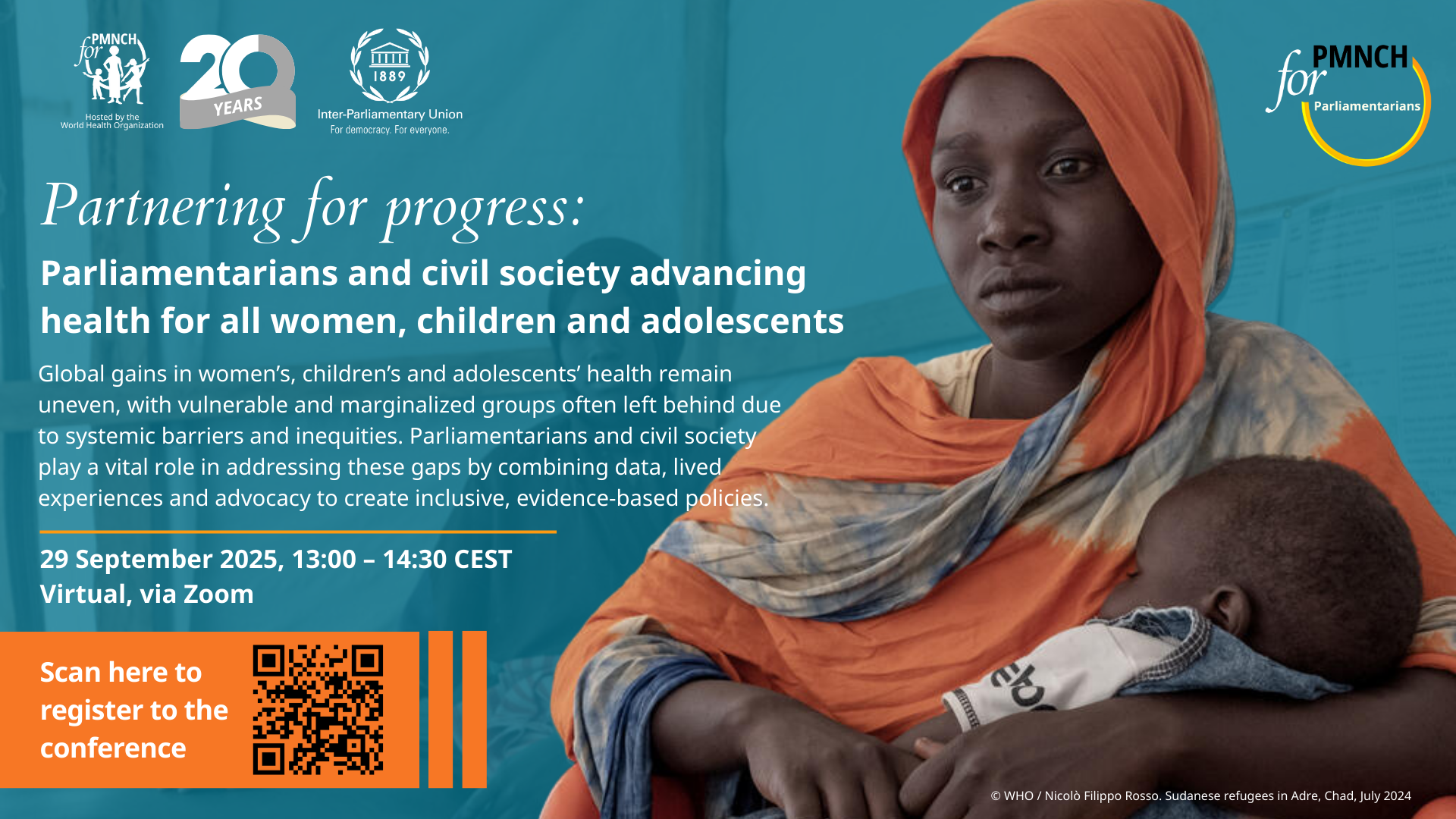
Globally, efforts to improve the health and wellbeing of women, children and adolescents have yielded significant gains. However, these gains remain uneven, and progress often fails to reach those living in vulnerable and marginalized situations. The concepts of vulnerability and marginalization are not fixed and often reflect deep-rooted structural injustices and systemic exclusion. Yet the language used to describe these groups can risk obscuring the historical and social contexts that have created their circumstances. Definitions of vulnerability often fail to acknowledge the factors — such as discrimination, legal barriers and inadequate service delivery — that perpetuate health inequities.
Parliamentarians play a vital role in addressing these issues and driving transformative change that improves health outcomes and contributes to achieving the Sustainable Development Goals (SDGs). In 2024, the Inter-Parliamentary Union (IPU) and the Partnership for Maternal, Newborn and Child Health (PMNCH) produced a guide entitled Strengthening the parliamentary response to the health needs of vulnerable and marginalized women, children and adolescents, providing insights and recommendations on how parliaments define, identify and target women, children and adolescents in vulnerable and marginalized situations. It outlines the importance of formal and informal mechanisms, such as parliamentary hearings, community consultations, and other public engagement mechanisms, through which parliamentarians can gather data and insights. These processes are more effective when groups working with marginalized populations possess strong parliamentary advocacy skills; and when disaggregated national data (or data from specific sectors such as health) is available to help identify inequalities.
Civil society organizations (CSOs) are key allies in this work. They can provide parliamentarians with vital data, contextual knowledge and community-sourced evidence that bring visibility to the daily realities of women, children and adolescents in vulnerable and marginalized situations. Beyond numbers, CSOs can help convey the lived experiences that often remain hidden behind statistics, helping parliamentarians understand the human impact of policy and legislative choices.
This collaboration can help create a culture of evidence-based policymaking, where data is not only collected but actively used by parliamentarians to continuously improve health outcomes for populations in vulnerable and marginalized situations.
For this to be effective, parliamentarians also need support and training in building partnerships with community leaders and engaging with marginalized groups in respectful, inclusive ways, even in stressful settings or when discussing difficult issues – so that all voices are genuinely heard in policy debates.
The objectives of the webinar are to:
- Provide a platform where parliamentarians and civil society organizations, including youth-led and community-based groups, can exchange on mechanisms and practices to gather data and insights on the needs of women, children and adolescents in vulnerable and marginalized situations.
- Showcase concrete examples and strategies to enhance collaboration between parliamentarians and CSOs that have advanced the women’s, children’s and adolescents’ health (WCAH) agenda.

.png?sfvrsn=6d0e27cd_1)



